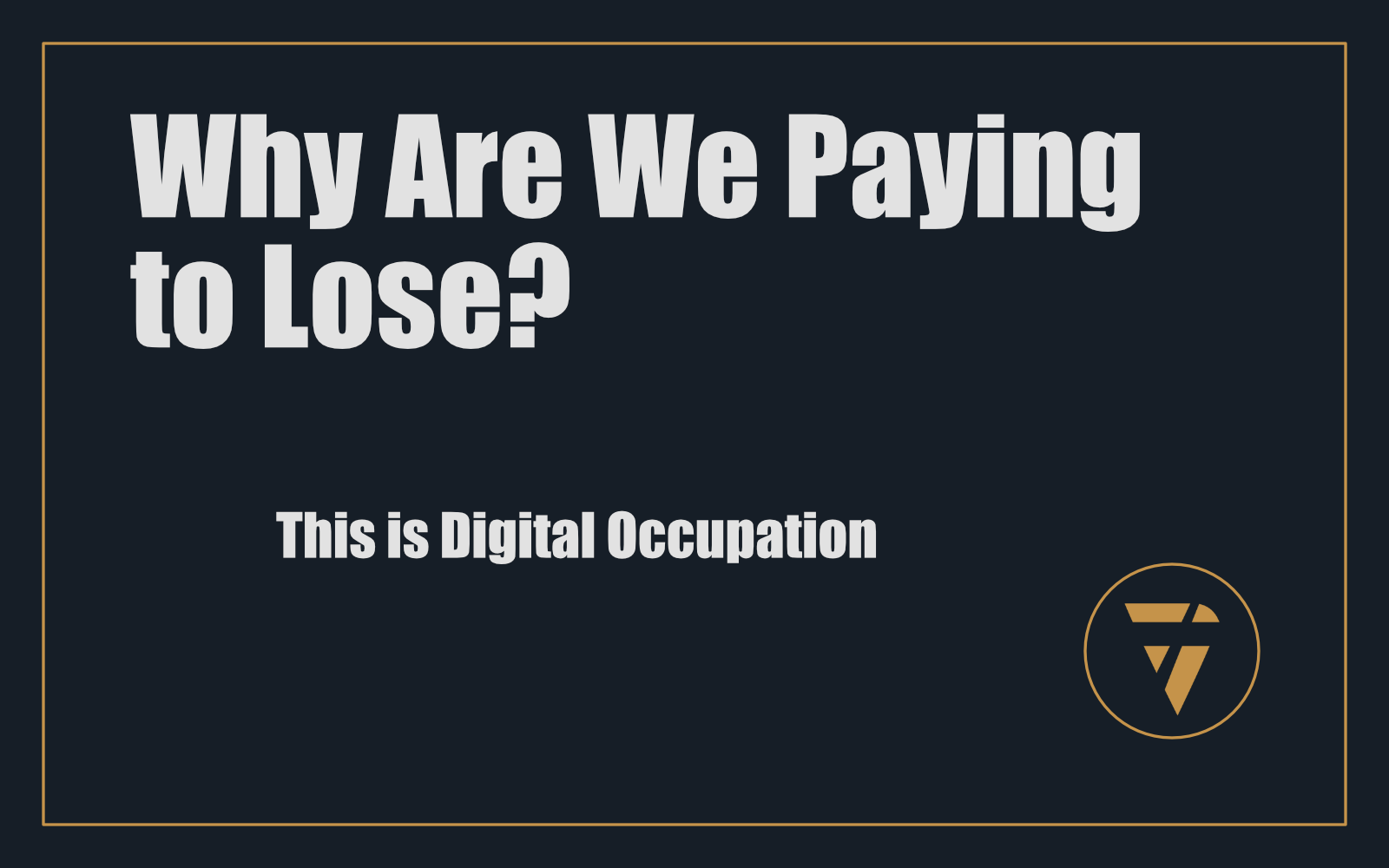Why Are We Paying to Lose?

This is Digital Occupation
Postmedia controls 40–50% of Canada’s newspaper titles. It dominates daily circulation at the same rate. In cities like Vancouver and entire regions like Atlantic Canada, its grip is total. It is the largest media publisher in the country — by distribution, by presence, by narrative reach.
This is not plurality. This is occupation.
Imagine if, during World War II, Adolf Hitler had owned half the media in Britain. Headlines bending toward accommodation. Editorials sowing doubt about Churchill. Daily stories painting resistance as hysteria. War reporting that softened enemy intent and questioned the cost of national defence.
Britain would not have held.
Imagine if Saddam Hussein had controlled the American press during the Gulf War. Every military briefing countered by Iraqi messaging. Every war crime blurred with context. Op-eds normalising leadership. “Both sides” journalism softening his tyranny.
The war would have fractured. The will to fight would have collapsed.
And yet — in 2025 — we fund our own erasure.
Canadian taxpayers hand tens of millions of dollars to a media entity whose controlling interest lies outside the country, whose editorial direction leans hard to the ideological right, and whose coverage routinely undermines the very institutions that finance it.
That is sabotage.
Postmedia is not just a legacy media company struggling to stay afloat. It is a captured entity, reshaped into a vehicle of narrative control. Its papers may carry different mastheads — the Calgary Herald, the Vancouver Sun, the National Post, and more — but their voice is singular. Its editorials are coordinated. Its headlines aligned. Its targets consistent.
The mission is not to inform. The mission is to influence.
It attacks public healthcare, public education, and public media. It undermines trust in elections, environmental regulation, and social policy. It amplifies grievance, distorts protest, and platform voices that move public discourse toward resentment, not resolution.
And we fund it.
This is not about bias. Every outlet has a perspective. But when one company controls half the market, receives public funds, and advances a consistent ideological frame that aligns with the financial interests of its foreign parent — that is no longer journalism.
That is strategic propaganda — at scale.
Ask yourself: Why would a U.S.-based hedge fund want to own Canada’s largest media network?
Because media is leverage.
It sets the boundaries of acceptable conversation. It defines what is crisis and what is normal. It determines who is credible and who is dismissed. It does not tell people what to think — it tells them what to think about. That’s the lever. That’s the yield.
Postmedia knows this. Chatham knows this. And Ottawa — in either cowardice or complicity — plays along.
How did it get this way?
Because the collapse of local news made it easy. Because most people believe newspapers still operate as they did in 1970. Because we’ve been conditioned to treat media criticism as ideological, not structural. Because too many journalists still think the war is about facts — when it’s about frames.
And so we drift.
One headline at a time. One closed bureau. One framed protest. One softened scandal. Until the only stories left are the ones that serve power... or sell clicks.
And here’s the bitter edge: the more Postmedia fails as a business, the more it's rewarded.
Failing papers receive bailouts. Failing trust is met with subsidies. Declining circulation is blamed on “the market,” not the mission. And every dollar given, every ad placed, every federal program extended — props up a system whose true outcome is decay.
CEO Andrew MacLeod told shareholders that over $35 million in federal "government support" was one of four "key pillars" of the business strategy Canada's $600 million 'media bailout': A guide to federal tax breaks for the news industry.
So again — why are we paying to lose?
Because we’ve accepted the myth that “free press” means funding any press.
Because we confuse volume with diversity.
Because we think the crisis is digital — when it's political.
Because no one has built the counter.
This is not about left or right. It's about structure. It's about sovereignty. It's about the foundational truth that no democracy can sustain a media monopoly — especially not one whose master does not reside inside its borders.
You want real journalism? Fund it directly. Locally. Transparently.
You want diverse voices? Break up the holdings. End consolidation. Introduce competition.
You want trust? Kill the ghost brands. Build the next platform in the open.
But don’t pretend Postmedia can be reformed. It's not sick. It is performing exactly as designed. It does not need rescue. It needs replacement.
And not by nostalgia. Not by hope. Not by media literacy campaigns and polite letters to the editor.
By architecture. By rhythm. By precision. The same way Postmedia won.
We do not win by whining.
We win by building what cannot be ignored.
So choose: pay to be shaped — or pay to build.
There is no middle.
This is what I’m working on. Tell me what you think, I enjoy the conversation! Subscribe and follow the work in real time.
Thanks!
B

Postmedia owns half the press. In some places, it’s the only voice.
Imagine if Hitler had owned 50% of British media in 1942.
Or Saddam, U.S. media in 1991.
Different stories. Different outcomes.
Why are we paying to lose?
PS -






